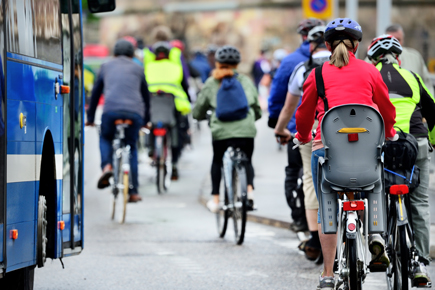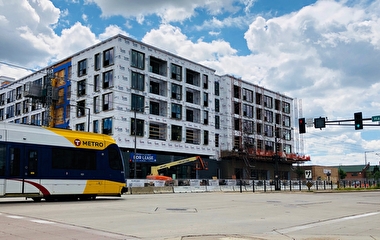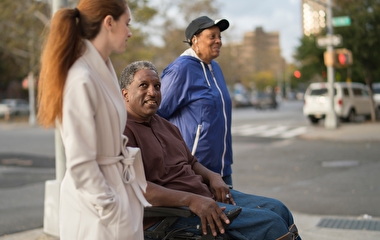People experience different emotions during daily travel. Their happiness varies depending on the mode they use, trip duration, and other factors. U of M researchers are exploring how happiness could become a useful metric to assess transportation systems and guide policymaking, supplementing more common measures such as mobility and accessibility.
“Happiness is increasingly seen as a gauge of an individual’s well-being, and this has many social implications,” says Yingling Fan, associate professor in the Humphrey School of Public Affairs. “Happier people often are more productive and creative, have better family and social relationships, live longer, and, in general, are more successful.”
Americans spend, on average, about 75 minutes on daily trips. “Given the known benefits of emotional well-being, it’s important for planners and policymakers to understand the connection between transportation and happiness,” Fan says.
In a recent analysis, Fan and Jing Zhu, an assistant professor at Northwest University in Xi’an, China, used data from the 2012–2013 American Time Use Survey (ATUS) to study how trip- and personal-level factors influence emotions. Zhu conducted the research while at the U of M through a visiting scholarship funded by the National Natural Science Foundation of China’s Young Scholar Program.
“Our results show that emotions are shaped in various ways by the mode, duration, purpose, and companionship characteristics of a trip,” Fan says. “For example, of the modes we examined, biking is the happiest. Long travel—more than 45 minutes—is the least happy and most tiring and stressful.”
In a current project, Fan and Julian Wolfson, an assistant professor in the Division of Biostatistics at the U of M’s School of Public Health, are studying the links between transportation and happiness in the Twin Cities area using the Daynamica™ app. Their work is part of the Sustainable Healthy Cities program, a National Science Foundation-supported Sustainability Research Network. Fan is the co-principal investigator of the four-year effort, which involves faculty from multiple disciplines at eight universities.
The researchers are studying participants in Blaine, Brooklyn Center, Saint Anthony Park, and Minneapolis using in-home surveys and smartphone data collection. “Using the Daynamica app on smartphones reduces the amount of data participants need to input,” Wolfson says. “This allows us to ask them to participate for multiple days or weeks, giving us more accurate and more representative data over a longer time period than in traditional travel behavior studies that use data from a single day.”
After controlling for neighborhood and individual differences, preliminary findings indicate biking is the happiest mode, which is consistent with findings from the ATUS study. The happiness levels of rail trips are found to be no different from car trips but higher than bus trips. “This is not surprising because on average the rail services in the Twin Cities are of much higher frequency, speed, and reliability than bus services in the region,” Wolfson says.
The results also reveal that the happiness gap between car and bus trips is significant for trips shorter than approximately 30 minutes, but the two modes do not differ in happiness for trips longer than half an hour.
Fan believes the research has important policy implications. “Transit reduces congestion and has environmental benefits, and many people depend on it. We can’t just hope people will use transit—we need to find ways to make these trips evoke happier emotions to increase ridership.”
She also advises making cities more bike-friendly and promoting jobs-housing balance to shorten commute length. “Trip duration has a big impact on happiness,” she says. “This suggests that land-use policies and urban design strategies that shorten trips can influence emotional well-being.”



